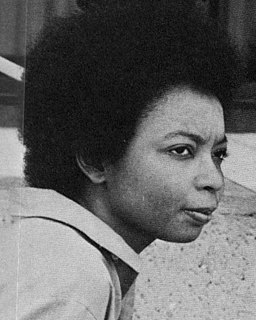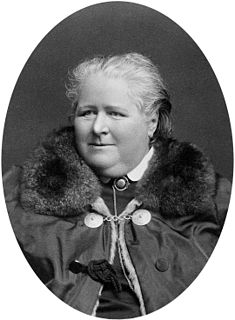A Quote by Jean M. Auel
Again Creb grunted. It was the usual noncommittal comment used by men when responding to a woman. It carried only enough meaning to indicate the woman had been understood, without acknowledging too much significance in what she said.
Related Quotes
There are things that a woman sings, and only a woman knows the full meaning. You may sing for men as well as for women, but only a woman knows your full meaning. I am not a feminista. I only think a woman should be true to who she believes herself to be. Or who she wants herself to be. Or who she imagines herself to be. I don't know what I mean, or whether I'm true myself to any of that. I don't think there are many of us who are true to our possibilities.
We said we would meet again but we made no arrangements. Not out of any bad feeling between us, but because I felt it had all been said, or not said but understood, and she probably did too. To know she was there was enough, and for her to know I was around was probably too. Sometimes that's all people ever really need. Just to know.
If women had power, what would men be but women who can't bear children? And what would women be but men who can?" "Hah!" went Tenar; and presently, with some cunning, she said, "Haven't there been queens? Weren't they women of power?" "A queen's only a she-king," said Ged. She snorted. "I mean, men give her power. They let her use their power. But it isn't hers, is it? It isn't because she's a woman that she's powerful, but despite it.
A woman cannot do the thing she ought, which means whatever perfect thing she can, in life, in art, in science, but she fears to let the perfect action take her part and rest there: she must prove what she can do before she does it, -- prate of woman's rights, of woman's mission, woman's function, till the men (who are prating, too, on their side) cry, A woman's function plainly is... to talk. Poor souls, they are very reasonably vexed!
We are born of woman, we are conceived in the womb of woman, we are engaged and married to woman. We make friendship with woman and the lineage continued because of woman. When one woman dies, we take another one, we are bound with the world through woman. Why should we talk ill of her, who gives birth to kings? The woman is born from woman; there is none without her. Only the One True Lord is without woman
The extraordinary woman depends on the ordinary woman. It is only when we know what were the conditions of the average woman's life - the number of children, whether she had money of her own, if she had a room to herself, whether she had help bringing up her family, if she had servants, whether part of the housework was her task - it is only when we can measure the way of life and experience made possible to the ordinary woman that we can account for the success or failure of the extraordinary woman as a writer.
I remember I had had one woman who had three or four kids, and some of them were having problems. I said, 'Maybe you could go write somewhere else, away from your house.' And sure enough, all kinds of wonderful stuff emerged. She was keeping too much charge of herself because she couldn't stop being a mother when she was in the house. You have to find your own way of letting loose, if you're one of those people.
Daisy was a consciously happy young woman without any of the usual endowments that make for conscious happiness, money apart. She was not pretty, she was not clever, she had no friends, no talents, nor even an imagination to make her think she was happy when she was really miserable. As she was never miserable, she had no need of an imagination.






































